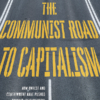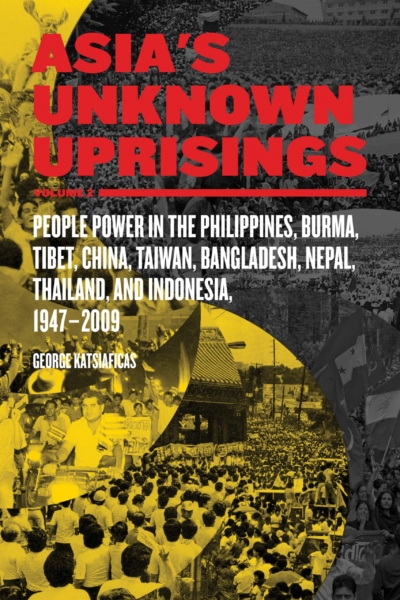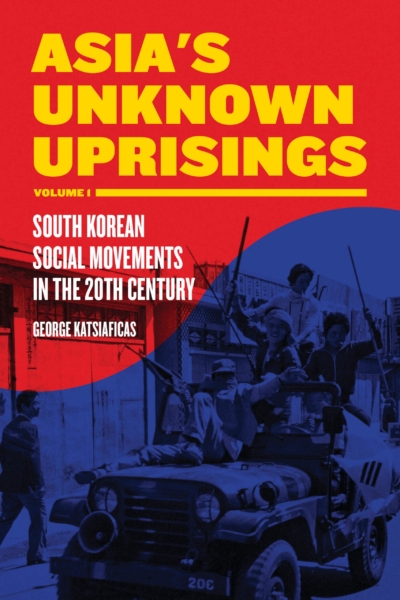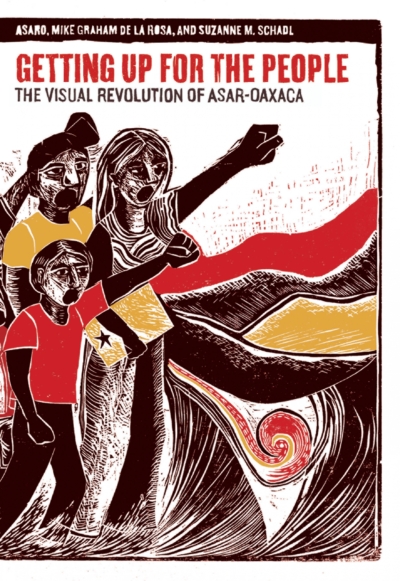The Communist Road to Capitalism explores how a dynamic of social struggles from below followed by countermeasures of the Chinese Communist Party (CCP) regime has pushed the historical evolution of the People’s Republic of China (PRC) since 1949.
Under socialism until the mid-1970s, during the ensuing transition until the mid-1990s, and in the capitalist period since, the CCP regime responded to the struggles of workers, peasants, migrants, and women* with a mix of repression, concession, cooptation, and reform. Ralf Ruckus shows that this dynamic took the country into a new phase each time—and eventually all the way from socialism to capitalism: in the 1950s, labor struggles and the Hundred Flowers Movement were followed by the regime’s Great Leap Forward; in the 1960s, the Cultural Revolution led to the CCP’s failed attempt to revitalize socialism; in the 1970s, social unrest and movements for a democratic socialism made room for the regime’s Reform and Opening policies; in the late 1980s, the Tian’anmen Square uprising triggered more radical reforms; in the 1990s, peasant and state worker unrest could not stop the capitalist restructuring; and in the 2000s, migrant worker struggles led to concessions, tightened repression, and the regime’s global capitalist expansion strategy in the 2010s.
The Communist Road to Capitalism breaks with established orthodoxies about the PRC’s socialist “successes” and myths on its later rise as an economic power. It combines a historiography of workers’, peasants’, migrants’, and women*’s struggles with a searing critique of exploitation, authoritarian state power and gender discrimination under socialism and capitalism. Drawing lessons from PRC history, Ralf Ruckus finally outlines political aims and methods for the left that avoid past mistakes and allow to fight on for a society free of all forms of exploitation and oppression.
About the book:
Author: Ralf Ruckus
Series: PM Press
ISBN: 978-1-62963-837-9
Published: September 2021
Format: Paperback
Size: 6×9
Pages: 256
Subjects: Political Economy / Chinese History
Praise:
- “The global Left is terribly confused about China. Thankfully, Ralf Ruckus has responded powerfully to this problem, one that has been made all the more urgent by China’s increasingly global ambitions and the attendant intensified imperial rivalry with the US and its allies. Undertaking a thorough and systematic analysis of evolving political, social, and economic dynamics, he reveals how China’s failed experiment with socialism laid the groundwork for its more recent explosive capitalist growth. But he also shows that the transition to capitalism was neither inevitable nor its victory final. Highly recommended!”
—Eli Friedman, professor of international and comparative labor at Cornell University and author of Insurgency Trap: Labor Politics in Postsocialist China - “What we in the western world take for granted and consume—clothes, computers, watches, mobile phones, etc.—depends largely on work and workers in today’s China. Yet work and workers in China have been almost invisible on the two sides of the Atlantic over the years. This book opens a window on the times and circumstances that ordinary women and men in China have gone through since the late 1940s. Ralf Ruckus unfolds a story of advancements, defeats, repressions, and revolts for better standards of living, individual and collective rights, freedom of expression and residence, dignity. This book will be indispensable to those who are not satisfied with grand geopolitical overviews about China, and who want to look closely into the People’s Republic of China’s past and current trends.”
—Ferruccio Gambino, veteran Italian activist, coeditor of the journal altre ragioni, and lecturer on international migrations at the University of Padua - “It is striking, with everything that has been written about contemporary China, how few works put the Chinese working class, in reality the key to China’s situation, front and center. Ralf Ruckus’s book is an excellent corrective to this lack. The Chinese working class, by its location in the world’s workshop, will shake the world as the Russian working class did in 1917, hopefully with a happier outcome.”
—Loren Goldner, coeditor of Insurgent Notes - “This highly original book traverses a range of contexts that will appeal to readers interested in nature and meaning of transition from socialism to capitalism in China. Of interest to both China experts and leftist activists, this timely book will help readers better understand both the complex history of the Communist Party of China and the contemporary nature of class struggle. Innovative in method and surprising in its findings, this superb book will prove to be a landmark work in advancing the field of Chinese labor history.”
—Andrej Grubacic, professor of anthropology at CIIS–San Francisco and coauthor of Living at the Edges of Capitalism and Wobblies and Zapatistas - “While there is renewed interest in socialism the world over, there seems to be consensus that socialism has not yet been realized. Even if this is true, it is curious how little time the socialist left spends on studying movements that claim to clear the path towards it. This is why The Communist Road to Capitalism is essential reading. Authored by a seasoned labor activist and scholar whose knowledge about working-class struggles in China is second to none, this book helps us answer some of the crucial questions of our time: Is there a way to socialism? Have we advanced on it? How do we reach its end?”
—Gabriel Kuhn, author of Antifascism, Sports, Sobriety: Forging a Militant Working-Class Culture
About the author:
Ralf Ruckus has been active in social movements in Europe and Asia for decades and publishes texts on social struggles in China and elsewhere. He edits gongchao.org and blogs on naoqingchu.org.















